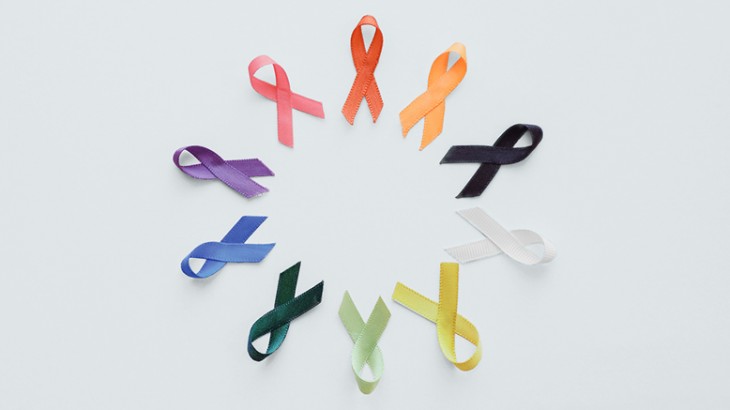Stay in check

Over the past 40 years, cancer survival in the UK has doubled. Cancer Research UK is now aiming to promote what steps people can take to help reduce their risk, writes Rachel Brennan.
Did you know that four in 10 UK cancer cases could be prevented? A person’s risk of developing cancer depends on many factors, including age, genetics, and exposure to risk factors (including some avoidable lifestyle factors).
Seeing your GP
The earlier a cancer is picked up, the easier it is to treat and the more likely the treatment is to be successful. Please speak to your GP as soon as possible, if you have any worrying symptoms.
Awareness campaigns
ITV Lorraine’s Change And Check breast cancer awareness campaign urges women to get to know their own breasts and look out for the signs of cancer. The signs and symptoms you're looking for are:
- Visible changes in shape or size
- Skin changes such as; dimpling, puckering or a rash around the nipple
- Lumps or bumps
- Bloody discharge from the nipple.
Prostate Cancer UK's top priority is funding research to stop prostate cancer killing men through finding better treatments and better tests that can spot fast-growing cancers early.
Most men with early prostate cancer don’t have any signs or symptoms, however some symptoms can include:
- Passing urine more often
- Difficult passing urine – this includes a weaker flow, not emptying your bladder completely and straining when starting to empty your bladder
- Urgency
- Blood in urine or semen.
Please remember, these symptoms do not always mean you have prostate cancer.
Through the Demand Survival Now campaign, Pancreatic Cancer UK aims to make pancreatic cancer a survivable disease through an increase in research investment; better, faster treatment and care; and a dedicated symptoms awareness campaign.
There are no distinct symptoms or clear early-warning signs for pancreatic cancer. Common symptoms can include stomach pain, jaundice and weight loss and it can also cause other symptoms such as diabetes, sickness, bowel changes, fever and shivering, indigestion and blood clots.
Support available
Support is available 24/7 from the First Class Support service, where you can obtain confidential and practical lifestyle advice as well as direct access to counselling services.
Call 0345 266 5060, visit www.rmgfirstclasssupport.co.uk or download the ‘Lifeworks’ app. New users of the website/app can ‘sign up’ using a unique invitation code, which is RMG- and then your payroll number, e.g. RMG-12345678.
The Rowland Hill Fund, offering financial aid to colleagues, pensioners and their families in times of need are available by calling 0345 600 4586 or visiting www.rowlandhillfund.org.
Visit www.cancerresearchuk.org and www.nhs.uk/conditions/cancer for further information and access to useful resource materials.



